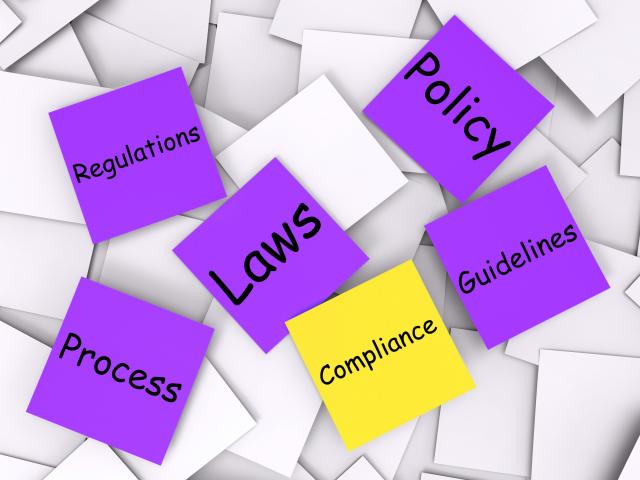Introduction
Online commerce has transformed how individuals purchase goods, interact with businesses, and handle financial exchanges. As digital markets grow, governments have established laws designed to regulate these transactions, protect consumers, and ensure fair, transparent business practices. These legal structures create a safer online environment, reduce fraud, and enhance trust between buyers and sellers. Understanding how these laws work is essential for businesses and consumers navigating the digital landscape.
The Importance of Legal Frameworks in Online Transactions
Legal frameworks governing online transactions ensure that digital interactions follow the same level of accountability and transparency found in traditional commerce. They provide rules for handling payments, returning goods, managing customer data, resolving disputes, and verifying identities. Without these laws, online markets would face widespread risks, including data theft, unfair business practices, and a lack of consumer confidence.
Regulations vary from country to country, but most share common goals: protect users, promote fair competition, and create a predictable legal environment for digital commerce.
Key Legal Areas That Regulate Online Transactions
Consumer Protection Laws
Consumer protection is at the heart of online transaction regulation. Governments require online businesses to provide accurate information, fair pricing, and transparent policies.
Common Consumer Protection Requirements
-
Clear product descriptions ensuring customers understand what they are buying
-
Transparent pricing, including taxes, fees, and additional charges
-
Return and refund policies presented before purchase
-
Truthful advertising that avoids misleading claims
These laws help consumers make informed decisions and hold online sellers accountable for their offerings. They also ensure businesses cannot exploit digital platforms to deceive users or hide essential information.
Digital Contract Laws
Digital transactions rely heavily on electronic agreements, making digital contract laws essential. These laws determine when an online agreement is legally binding and how consent is established.
Key Components of Digital Contract Regulations
-
Recognition of electronic signatures as legally valid
-
Consent mechanisms such as checkboxes or confirmation emails
-
Authentication requirements to confirm user identity
-
Timestamp verification ensuring transparency in timing
These rules guarantee that online agreements carry legal weight similar to traditional paper contracts. They also protect both parties by defining obligations and offering legal remedies when terms are violated.
Data Privacy and Protection Laws
Since online transactions involve the exchange of personal and financial information, privacy regulations are vital. These laws dictate how businesses collect, store, and use consumer data.
Core Elements of Data Privacy Regulations
-
Informed consent before collecting personal information
-
Purpose limitation ensuring data is used only for declared reasons
-
Data minimization, restricting collection to essential information
-
Right to access, modify, or delete personal data
-
Restrictions on data sharing with third parties
Privacy laws help prevent identity theft, unauthorized sharing, and data misuse. They also encourage businesses to adopt transparent data-handling practices that build user trust.
Cybersecurity Regulations
Online transactions are highly vulnerable to cyberattacks, making cybersecurity rules indispensable. These regulations require businesses to implement technical safeguards to protect financial and personal data.
Typical Cybersecurity Requirements
-
Encryption of sensitive information during storage and transmission
-
Secure payment gateways to process financial data
-
Multi-factor authentication to prevent unauthorized access
-
Routine security audits to identify vulnerabilities
These measures reduce the risk of hacking, fraud, and financial theft. Regulators often impose strict penalties for businesses that fail to maintain proper security practices, emphasizing the importance of safeguarding online environments.
Electronic Payment Regulations
Electronic payment laws govern the systems that manage digital financial transactions, ensuring safety, transparency, and reliability.
Key Principles in Payment Regulations
-
Licensing requirements for payment processors
-
Verification processes to confirm user identity
-
Fraud monitoring systems to detect suspicious activity
-
Dispute resolution mechanisms for unauthorized transactions
These regulations strengthen confidence in digital payment methods and protect consumers from financial losses due to fraudulent activity.
Intellectual Property Protection
Online marketplaces often involve digital content such as images, software, music, and written works. Intellectual property laws ensure that creators retain rights to their work and that digital platforms respect those rights.
Elements of IP Regulation in Digital Transactions
-
Protection against unauthorized copying
-
Regulation of digital distribution platforms
-
Clear licensing agreements for digital products
-
Penalties for infringement, including fines and takedowns
By upholding intellectual property rights, regulators create a fair digital marketplace that rewards creators and prevents misuse of protected content.
Cross-Border E-Commerce Regulations
Online transactions frequently cross national boundaries, making international regulations an important area of focus. Countries coordinate rules to streamline digital trade while ensuring compliance with local laws.
Important Factors in Cross-Border Regulation
-
Customs regulations for imported goods
-
Taxation requirements, including digital service taxes
-
Dispute resolution procedures when conflicts involve foreign sellers
-
Harmonization of consumer protection laws across regions
These regulations help manage global digital marketplaces and ensure that consumers receive consistent protection regardless of where a seller operates.
Anti-Fraud and Identity Verification Laws
Fraud remains a major threat in digital commerce, prompting governments to establish rules for identity verification and fraud detection.
Typical Anti-Fraud Requirements
-
Verification tools such as digital identity checks
-
Transaction monitoring systems analyzing unusual behavior
-
Reporting obligations for suspicious activities
-
Restrictions on anonymous high-value transactions
These laws ensure that digital transactions remain trustworthy and reduce the risk of scams, money laundering, and other criminal activities.
Impact of Regulation on Businesses and Consumers
Effective regulation benefits both consumers and businesses by establishing trust in digital markets. Consumers gain confidence when they know that laws protect their data, uphold their rights, and secure their transactions. Businesses benefit from clear standards and predictable legal environments that reduce disputes and encourage healthy competition.
However, compliance can be challenging for companies. They must invest in cybersecurity, legal expertise, privacy tools, and regular audits. Despite these costs, compliance strengthens brand credibility and reduces legal risks.
The Future of Online Transaction Regulation
As technology advances, laws governing digital transactions will continue to evolve. Emerging areas such as artificial intelligence, blockchain, digital currencies, and biometric authentication are already influencing how regulators approach online commerce.
Future laws are expected to focus on:
-
Stronger privacy protections
-
Broader cybersecurity requirements
-
International harmonization for cross-border transactions
-
Regulation of digital currencies and decentralized finance
-
Guidelines for AI-driven decision-making in e-commerce
By adapting to technological changes, governments aim to keep online transactions safe, reliable, and fair.
FAQ Section
1. Why do online transactions need legal regulation?
They require regulation to protect consumers, prevent fraud, and ensure businesses operate transparently and responsibly.
2. Are electronic contracts legally binding?
Yes, electronic contracts are valid as long as both parties give clear consent and proper authentication is used.
3. What information must online businesses disclose to consumers?
Businesses must provide details on pricing, product descriptions, shipping terms, and return policies.
4. How do privacy laws affect online transactions?
Privacy laws restrict how data is collected and used, ensuring that consumers’ personal information is safeguarded.
5. What happens if a business fails to secure customer data?
They may face penalties, lawsuits, or regulatory action depending on the severity of the breach.
6. How are online payment systems regulated?
Payment systems must follow rules related to identity verification, fraud detection, licensing, and transaction transparency.
7. Do international purchases follow the same consumer protection rules?
Not always; cross-border transactions may involve multiple legal systems, requiring sellers and buyers to follow applicable regional regulations.




